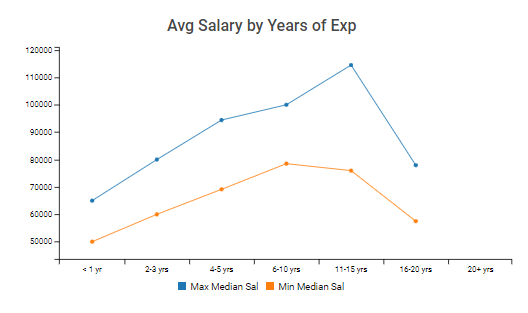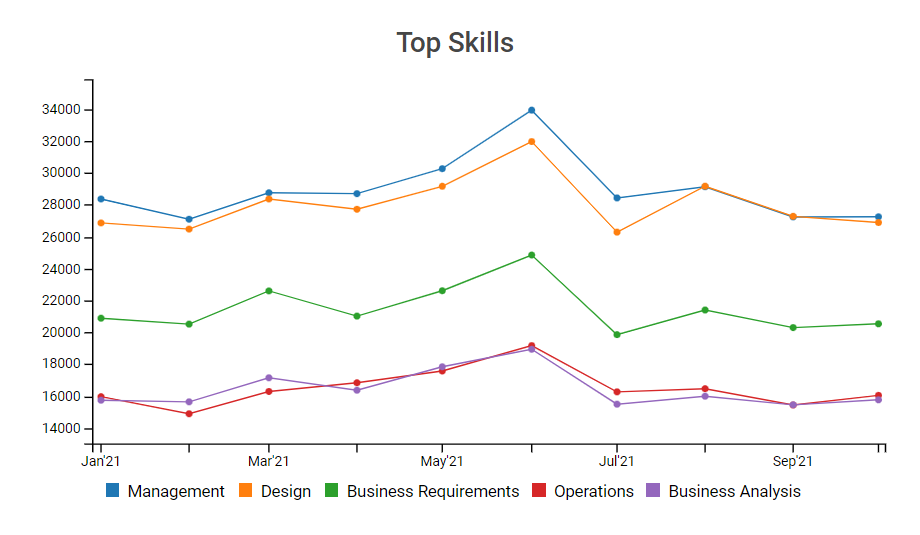Business analysts analyze various aspects of a business to make sure that it keeps thriving, making profits and remains on the path to its long-term as well as short-term goals.
- They may have to look at strategic decisions, such as whether certain partnerships or acquisitions may prove fruitful in the long run, or which new avenues can be explored.
- Business models may also need to be analyzed to decide changes that need to be brought about in order to effectively future-proof the business.
- Process design is another aspect that sets the efficiency and output of a company. Effective design of processes requires business analysts to study existing processes in the same company or outside.
- Technical decisions such as analyzing which tech-stack to adopt, or which tools to use may also be done by business analysts who would have to evaluate multiple options before making the final decisions.
Business analyst jobs don’t always equate to PowerPoint Presentations and Excel Sheets. In fact, the primary requirements today are problem-solving and interpersonal skills. The ability to procure data by interacting with multiple departments or stakeholders and bringing everyone to the same drawing board is what makes the role of business analysts most important. Their abilities help companies make sure that business decisions are always data-backed.

Every type of company, (whether they are selling books online, or building houses) hires business analysts to help grow their businesses and to make sure that current operations run as efficiently as possible. Solving business problems remain the primary reason why companies both big and small hire business analysts.
In the past, business analysts have mostly been tied to the IT sector, and even today while most jobs for this role do exist in the IT or the finance sector, others too hire such personnel, although in much smaller numbers. For smaller companies that do not need in-house business analysts, freelancers are often hired to serve in contractual positions.
Business Analyst Salary
We reached certain estimates for salaries of business analysts based on the data that we collected from multiple Geographic locations. The starting salary at less than a year’s experience ranges from $50k to $65k. This number keeps increasing until you hit the 10-15 year mark. Business analysts with more than 10-15 years of experience see a stark fall in salary.

There can be a few reasons behind this– Analysts with so many years of experience are expected to have moved up the ladder and taken up leadership positions. Those left behind might be the smallest group. Another possibility is that those who have changed their job midway through their career are the only ones working at this position even after 10-15 years due to which their salaries are comparatively lower.
Key Points in a Business Analyst Job Description
Job posts for business analysts are plenty and you could just Google the term to find a few. Any typical job post for the position of a Business Analyst is bound to ask for someone who has worked with tools like Microsoft Office, Tableau, PowerBi, and more. Data Modelling techniques are another important requirement. While a Bachelor’s or a Master’s degree is preferred, relevant experience can often trump that. Data visualization is another skill that is asked for, irrespective of the tool that is used to create it. We shall discuss the skills and other profile requirements in detail.
Business Analyst Profile Requirements
A bachelor’s degree in business, computing, economics, or an MBA is the most preferred educational qualification seen across job posts in different countries. However, due to the main focus of the job being problem-solving abilities, relevant internships or apprenticeships can also help one nail job applications. After all, it’s the applied skills that really matter to take on this position.
Professions with CFA charter or those with professional qualifications from Business Study Institutions can also apply to this job position. Going through case studies and getting one’s hands dirty with data is all that is really required to fill the shoes.
Skill Requirements
A specific set of skills cannot be attributed to Business Analysts. Job roles, companies, and specific sectors may have their own skillset requirements. With time, the requirements get updated, and experience with the latest tools of the industry is also desired. However, Excel and Powerpoint still remain unspoken must-haves.
Companies often post some of these requirements when looking for Business Analysts:
- The ability to break down a problem into smaller consumable pieces that can be scoped and solved by different members or teams.
- Interpersonal skills that would help a business analyst work with different teams and implement the changes across departments.
- Data wrangling skills are a must, be in Excel, Python, or R. While the tool is not important, the outcome is.
- Presentation skills are widely sought after since the responsibility of displaying the findings from data and convincing the stakeholders, lie on the shoulders of the data analysts themselves.
- Risk analysis may be a requirement especially for the roles originating in the finance or fintech sector. Business risk has to be calculated and implications thought of when implementing new company-wide decisions.
- Awareness of the latest happenings and market conditions is a must since companies are often affected greatly by external factors that are not in their control.
- Project management techniques and the knowledge of computing systems may also be sought in case the job is in the IT sector.

A study of the job posts for the position of Business Analyst conducted by our team at JobsPikr revealed that the most in-demand skill is management, followed by (and at times overtaken by) design, followed by the rest.
Work Experience Requirements
Previous experience in the same or similar role as an intern or at a full-time position can highly benefit those looking to apply at the top jobs. Individuals would be better off getting experience in the industry in which they would like to work later on. For example, if you work as an intern at a bank during college, running their numbers and converting their dull data to consumable graphs, you will have an easier time pitching your profile to financial institutions or fund-houses once you graduate.
Working Hours
While the role usually requires a normal 45-hour workweek, extra hours may often be required when companies are scaling up their operations or planning on a major acquisition or partnership. One benefit in post-COVID times is that since most Business Analysts conduct their work from laptops, most of them can work from home until things get better (provided their company gives them the option).
Top Global Employers
Top employees for Business Analysts are Banks, Consultancy Firms, Government Organizations, Research Firms such as those studying the economic ramifications of different events, utility companies, large retailers, and more.
| Company | Industry |
| American Express | Financial Institute |
| Accenture | Consulting |
| ZS Associates | Consulting |
| Deloitte | Accounting |
| IBM | IT services |
| CitiBank | Financial Institute |
| Bain & Company | Consulting |
| Cisco Systems | Computer Systems and Software |
| McKinsey & Company | Consulting |
| Internet |
Based on the top job posts from companies in multiple geographical locations, we created a table of the companies and the industry they are in. As you can see from the table, the top companies hiring Business Analysts are mostly companies that are into accounting, consulting, IT businesses, or finance.
Career prospects
As a business analyst, you would probably start off as an intern and then move on from junior to senior positions. The path may eventually lead to a team lead or managerial position. Senior leadership positions like heads of analytics or risk may also be possible for those with considerable experience in different domains at different positions.
Most often companies prefer business analysts with diverse experience, preferably in multiple companies to take on leadership positions where they can guide the business team or the risk team. The varied experience helps them in deciding the roadmap of the company while focusing on long-term goals and mitigating risks that may arise from time to time.




